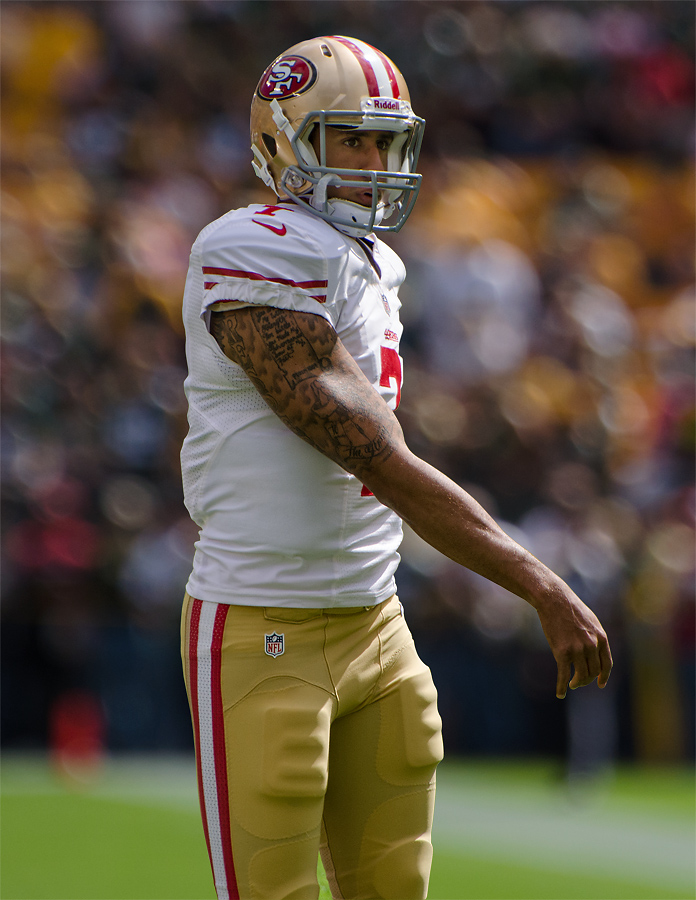
I don’t know how much I’ve shared this on my blog, but one of the sports I follow closely is NASCAR. Yes, the same NASCAR that for the longest time has been stereotyped as a racist southern sport…and backed up those stereotypes with all of the Confederate flags that fans were able to have in the infields of racetracks. It’s also the same NASCAR that made national news when it announced a long-overdue decision not to allow said flags at NASCAR events.
While NASCAR got positive attention for this, it also ended up in a bit of controversy when news broke that one of its teams was going to have “Trump 2020” on the car for a number of races—something that happened because the Patriots of America PAC (a political action committee supporting President Donald Trump) paid $350,000 to said race team to have “Trump 2020” on the car.[1] I’m sure some Trump supporters were happy to see their candidate’s name on the car (though maybe less so upon finding out that said car has spent most of the season below 25th place in points[2]), but many have pointed out the hypocrisy of advocating for a Confederate flag ban while allowing pro-Trump sponsorship at the races. And frankly, given some of the comments that President Trump has made about matters such as the Confederate flag, Confederate statues, and Black Lives Matter, I can see why someone would think that NASCAR is being hypocritical.
However, I think the debate over “Trump 2020” on a sub-25th place car should expand beyond even whether said sponsor is moral or should be allowed. Namely, we need to have a larger conversation about sports sponsorships and morality—a conversation we don’t have often for whatever reason—because there are quite a few sponsors throughout sports that are morally questionable. And if you think I’m being overly sensitive, consider this breakdown of sponsorships and morals (or lack thereof) in a number of top sports:
- Mars: They sponsor the defending NASCAR Cup Series champion, Kyle Busch.[3] They also have a long-standing reputation of producing chocolate with child labor.[4]
- Nike: They are the official supplier of NFL, NBA, and MLB uniforms.[5] They’ve had a history of using sweatshops to produce their apparel and are now linked to the use of forced labor.[6]
- Caesars Entertainment: The NFL has an official casino sponsor in Caesars Entertainment.[7] Gambling is also an addiction that can and has ruined people’s lives.
- Adidas: Adidas has a $700 million deal with Major League Soccer,[8] and they are also linked to accusations of forced labor.[9] Like Nike, Adidas has a history of sweatshop use.
- Red Bull: They’re everywhere. They sponsor numerous soccer/football teams, a Formula One team, and more. Energy drinks can also be harmful for one’s body.[10]
This is not an exhaustive list of sponsors with morals that are questionable, but these are some of the major ones. Still, this short list should give people a sense of how reliant so many major sports are on sponsors such as these. This list shows that it’s an issue much bigger than “Trump 2020” on a race car. It’s also an issue that seems to get ignored in the debates over whether “Trump 2020” should be on a race car to begin with, even though it would be beneficial to include the Trump car in a larger debate on where to draw the line with sports sponsorships and morals.
As to how to tackle this issue with sports and sponsors with questionable morals, I’m not sure. There most certainly is a line that many major sports have drawn with sponsors—otherwise we might still be talking about the NASCAR Winston Cup Series.[11] But as to where exactly that line is drawn, it’s something that needs to really be discussed at-length, because while I wish there wasn’t the need for any of these morally questionable sponsors to begin with, I also realize that if not for the existence of these sponsors, many people would be out of their jobs, out of their livelihoods.
What do you, the reader, think of sports sponsorships and morality? Where do you think the line should be drawn? At which point do you believe a sponsor is morally questionable enough that it should not be allowed in by a sport? You need not be a sports fan to comment below!
[1] https://www.chicagotribune.com/sports/breaking/ct-nascar-political-paint-schemes-20200704-pwofhks3nbdtfhskcr4ebsnrea-story.html
[2] https://www.racing-reference.info/drivdet/lajoico01/2020/W
[3] https://www.mms.com/en-us/experience-mms/nascar
[4] https://blindinjusticeblog.com/2020/01/23/slavery-and-chocolate-some-not-so-sweet-truths/
[5] https://money.cnn.com/2018/03/27/news/companies/nike-nfl-gear-contract/index.html
[6] https://www.forbes.com/sites/siminamistreanu/2020/03/02/study-links-nike-adidas-and-apple-to-forced-uighur-labor/#41332b191003
[7] https://www.usatoday.com/story/sports/nfl/2019/01/03/nfl-caesars-sign-casino-sponsor-deal-minus-sports-betting/38836737/
[8] https://www.usatoday.com/story/sports/mls/2017/08/02/mls-gets-record-sponsorship-deal-adidas/534865001/
[9] https://www.forbes.com/sites/siminamistreanu/2020/03/02/study-links-nike-adidas-and-apple-to-forced-uighur-labor/#2c0f8bb61003
[10] The National Institutes of Health in the United States has a whole page breaking down the health impacts of energy drinks on one’s body, particularly those of teenagers and young adults: https://www.nccih.nih.gov/health/energy-drinks
[11] Winston, a brand of cigarettes, sponsored the top level of NASCAR for over three decades. Some of my earliest memories as a NASCAR fan come from when the top level was called the Winston Cup Series. The concerns over a cigarette brand sponsoring the series was why NASCAR changed title sponsors: https://www.foxsports.com/nascar/gallery/nascar-premier-series-names-through-the-years-120216

